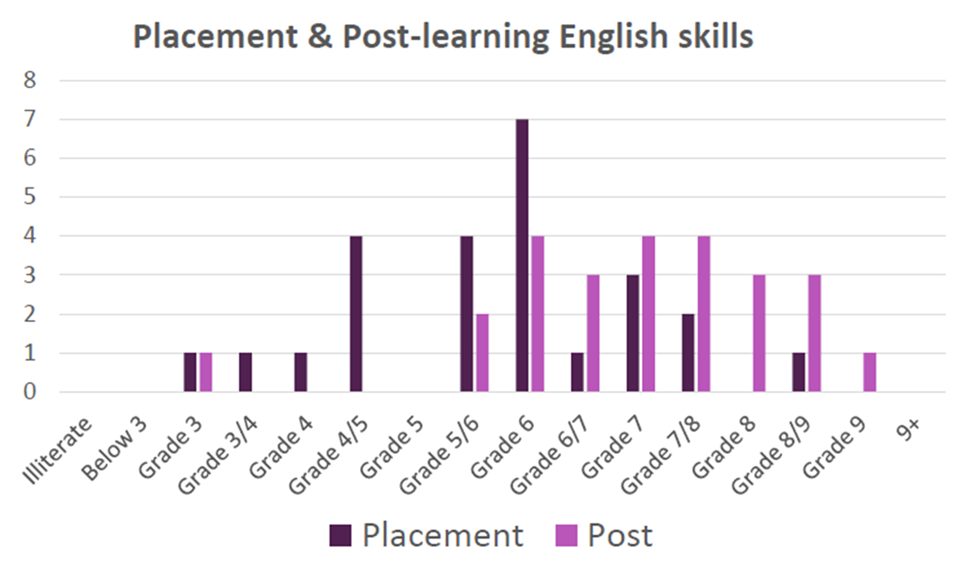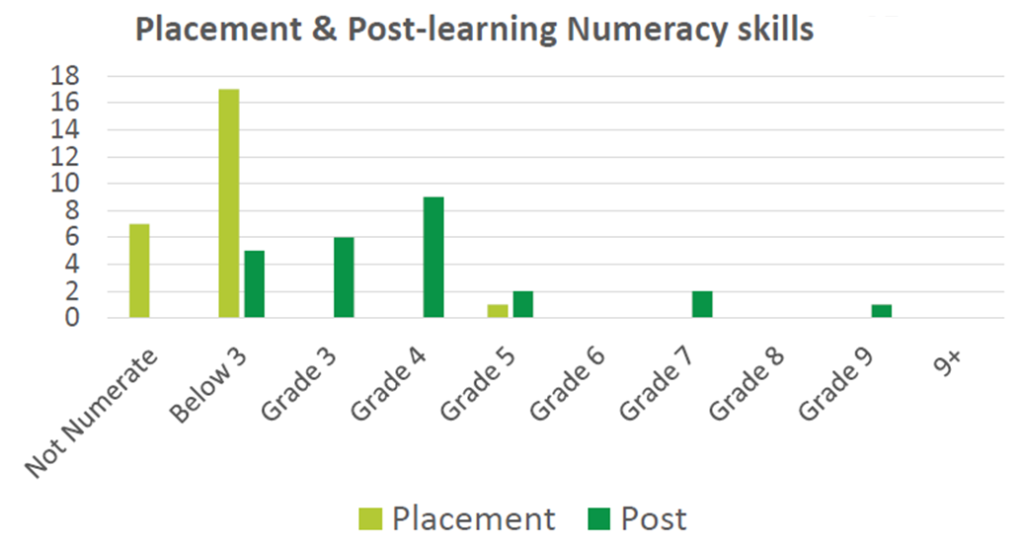Effective communication is of paramount importance in the modern marketplace. As one of the foundational Meta Skills it is an indicator of employee capacity to contribute to your organisation.
We take this capability for granted as a basic skill. We expect it to be addressed by the basic education environment, long before the person enters the workforce. Our data tells a different story.
We assess every learner before placing them into a program. We use ELSA for the literacy and numeracy capability assessment. The age of our average learner is just under 27.
Although, on average these learners have achieved grade 11.4 (Pink Bars), with the vast majority having a matric certificate, this is not an accurate reflection of their capabilities.
Numeracy (Blue Bars) averages out at Grade 3-4, with the bulk numerate under Grade 3. The literacy (Green Bars) average is Grade 7.
1. What is Effective Communication?
For our workforce to communicate effectively, the baseline is a professional command of the English language. This is critical for Health and Safety, execution of instructions, relaying of critical information, and supporting decision-making.
It then builds into more specific competence statements:
- I understand the value of language.
- I understand communication dynamics.
- My verbal communication is accurate and succinct.
- I write effectively.
- My visual communication is effective.
These competencies require an improved command of English. Specifically in the modern South African workplace.
2. Our Results
We invest significant resources to improve outcomes and efficiencies for non-native English speakers to improve competence. This directly translates to their employability. The results of one such 12-week intervention are indicated below.
During these 12 weeks, the average learner improved by 2 grades in both literacy and numeracy.
3. Return on Investment
We deliver these services for both unemployed youths to improve employment prospects and for corporations seeking these types of interventions for their workforce. Our clients in logistics, warehousing and other labour-intensive industries have challenges with promotions to the supervisory levels without addressing these capacity constraints. This often cascades into high churn rates in entry-level positions, which in turn disincentivises investment.
Our clients that adopt an investment posture reap the benefits in culture, labour relations, and career development for the committed workers in their lower ranks. These individuals usually turn out to be great supervisors with the respect and reverence of their peers. They also become the counter-narrative that stirs hope of a different path for entry-level staff.
4. Shaping Tomorrow’s Workforce
We must invest in the baseline capabilities of tomorrow’s workforce. There are significant benefits to re-evaluating our posture towards our entry-level staff. The prevailing approach remains centred around their utility value as a standardised service in a competitive market driven by demand. Those progressive corporations posturing their entry-level staff as strategic competence (Human Capital) are finding investment returns, sustainability, and resilience.
It is a both-and discussion. There are compelling reasons to consider joint investment in unemployed youth in local feeder areas for future human capital needs. Many corporations still approach Social Impact as an island they wish to control. The benefits of scale through a coordinated approach with a long-term strategic capability development posture will cultivate a healthy landscape in which our economy thrives.
A rising tide rises all boats.
5. Changing Your Posture
We partner with corporations to catalyse and coordinate their social impact and shape their future workforce. If you are ready to invest in social assets to improve your sustainability, get in touch here or reach out to us at [email protected].



